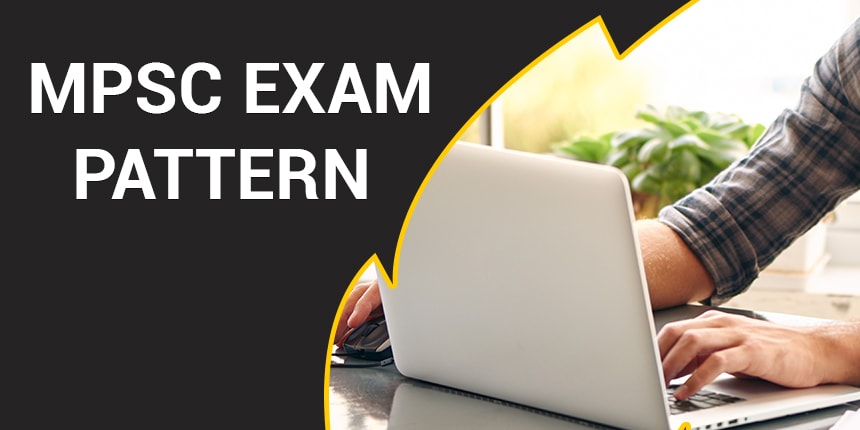MPSC Exam Pattern 2020
MPSC Exam Pattern 2020 - Maharashtra PSC will release the MPSC 2020 exam pattern in the official notification. Applicants must check the exam pattern of MPSC 2020 before starting their preparations. MPSC exam pattern 2020 mentions subjects asked in the exam, exam duration, number of questions and marking scheme. The Maharashtra PSC exam pattern will be released separately for prelims and mains exam of MPSC. According to the MPSC 2020 exam pattern, the prelims and mains exam will be objective type except the language paper. Applicants must check the MPSC Exam Pattern 2020 for effective preparation strategy. Candidates can also check the MPSC syllabus for their preparations. Maharashtra Public Service Commission will conduct the MPSC Exam 2020 tentatively in July 2020 for the recruitment of candidates for various state government posts. Previously tha exam was scheduled to be held on April 5, 2020. For more details about the MPSC paper pattern 2020, candidates can check the article given below.

MPSC Exam Pattern 2020 For Prelims Exam
MPSC prelims exam will be conducted in offline mode.
The prelims exam of MPSC comprises two papers - General Studies and Civil Services Aptitude Test.
There will be a negative marking of 1/3rd mark for every wrong answer.
The total duration of the MPSC prelims exam is 4 hours.
For more details about MPSC exam pattern for prelims exam, candidates can check the table given below.
MPSC Prelims Paper Pattern 2020
Paper | Number of questions | Maximum marks | Duration |
General Studies | 100 | 200 | 2 hours |
Civil Services Aptitude Test | 80 | 200 | 2 hours |
MPPSC Exam Pattern 2020 For Mains Exam
The mains exam of MPSC comprises 6 papers.
The language paper will be descriptive in nature while other papers will be objective type.
All 6 papers are compulsory in the MPSC mains exam.
There will be a negative marking of 1/3rd mark for every wrong answer in mains exam.
For more details about the MPSC 2020 exam pattern, candidates can check the table given below.
MPSC Main Exam Pattern 2020
Paper | Subject | Maximum marks | Duration |
Paper 1 | Marathi/English language | 100 | 3 Hour |
Paper 2 | Marathi/English language | 100 | 1 Hours |
Paper 3 | General Studies | 150 | 2 Hours |
Paper 4 | General Studies | 150 | 2 Hours |
Paper 5 | General Studies | 150 | 2 Hours |
Paper 6 | General Studies | 150 | 2 Hours |
MPSC Syllabus 2020
The exam conducting authorities releases the syllabus in the official notification. Candidates can check syllabus to know important chapters and topics asked in MPSC exam. The syllabus will be released for both prelims and mains exam separately. Applicants must check the syllabus thoroughly before starting their preparations.
MPSC Question Papers 2020
Applicants can check MPSC previous year question papers from the official website. Candidates must check question papers to know important topics and chapters asked in the exam. With the help of question papers, applicants can also make effective preparation strategy to score good in exam.
How To Prepare For MPSC Exam 2020
Make study time table before starting your preparations
Distribute time among all topics to complete syllabus in time.
Check MPSC exam pattern and syllabus thoroughly for effective preparation
Practice previous year MPSC question papers
Prepare short notes for revision
